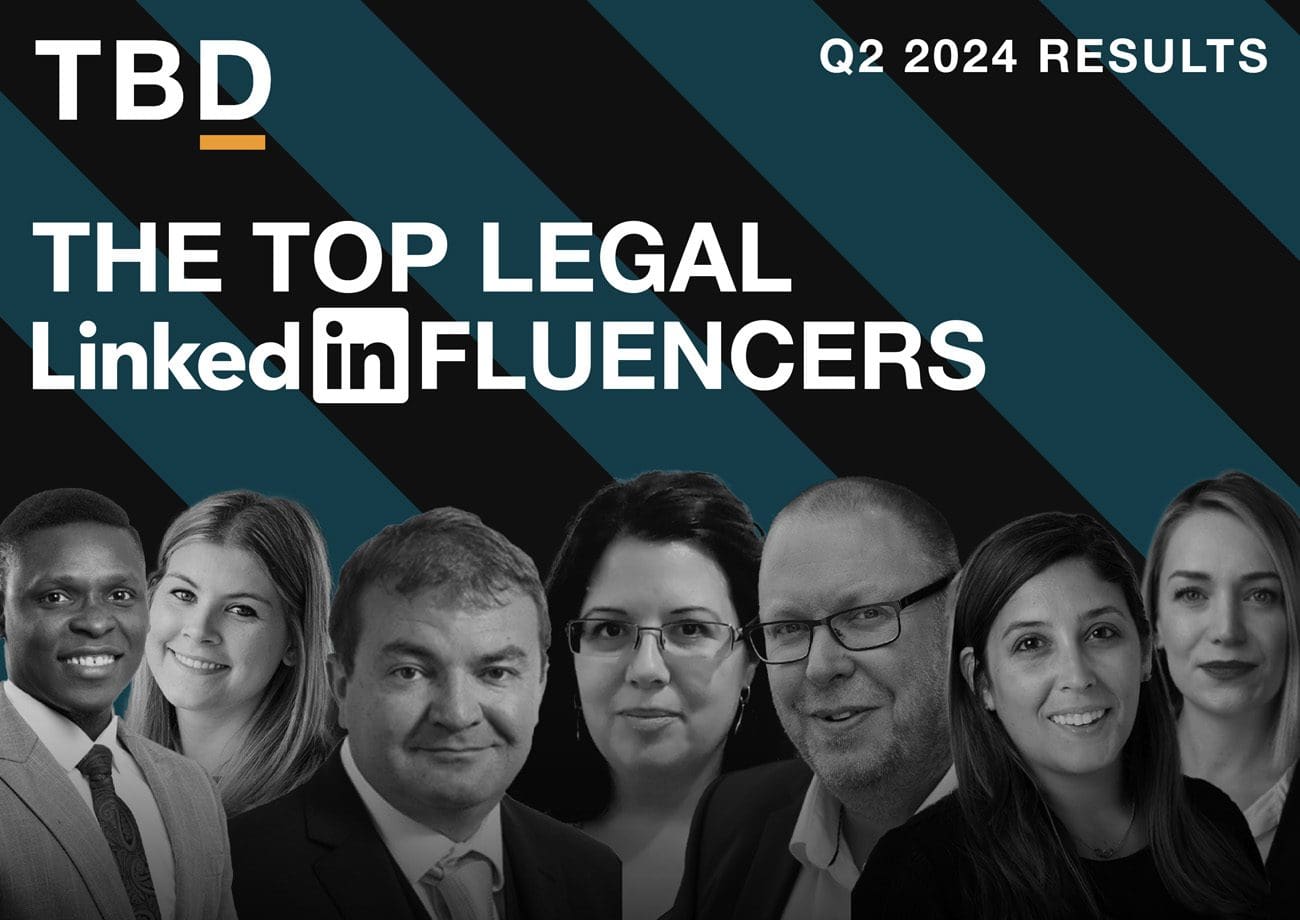Art pour l’art?
A picture paints a thousand words. And certainly costs much more than a thousand pounds, if created by one of the living luminaries of the modern art scene – think David Hockney, Cody Choi or Grace Green. So what’s the message being conveyed by the often eye-wateringly expensive works of art collected, curated and displayed by many of the top law firms in their offices?
Wealth, prestige and good taste is one obvious answer. It has become pretty much de rigueur for City law-firm offices to have such collections on display, as these artworks eloquently yet wordlessly speak the vernacular of the moneyed, cultured classes, reassuring well-heeled and powerful clients that they are amongst their own people and in good hands.
Too cynical? Perhaps, and there is certainly more going on here. In some cases, the art on display is also very much a reflection of the partners’ own personal tastes – at Simmons & Simmons, for example, where I used to work, the trend of collecting art was started by an art-loving partner with connections to the Young British Artists movement. Today, the firm owns a major collection of paintings, drawings and photography by contemporary artists. I went looking for a favourite Steve McQueen piece when I was back in the offices the other day but sadly, it had moved.
Some law firms also use their collections to demonstrate their allegiance to a region or city, to support a particular group, or to represent certain virtues or values the respective firm feels it possesses, such as intellectual rigour or a sense of humour. Over time, the works on display may even become part of a firm’s identity, an integral part of its DNA, and cherished as such.
Art can also provide a useful talking point, something to discuss with clients other than the negotiation or the contract. In some instances, a law firms’ collections can even serve as a useful recruitment tool – at Simmons, for example, trainees are offered the opportunity to learn about the collection and lead tours, a very different kind of incentive that has apparently proved very popular. And good art on the walls can also have mental-health benefits, helping stressed lawyers switch their mind off and feel a sense of calm as they engage with the works on display in the office.
Artists themselves are also benefiting from the trend. As the spigot of government funding towards the arts continues to dry up, law firms have become powerful patrons, promoting young and regional talent and in some instances offering residencies – Pinsent Masons, for instance, runs an artist-in-residence scheme, and has funded artists including sculptor Nick Hornby and multimedia artist Susan Stockwell. Speaking of his experience, Hornby states that he “discovered many commonalities” between art and law. “Each [has its] own unique and strange vocabularies and both require acute observation and an incredible attention to detail.”
One might question whether artists funded by law firms are truly free in their creative expression, or if they have to be careful not to be perceived to be biting the hand that feeds them – although many a famous artist, including the great Caravaggio, has stubbornly resisted the influence of powerful patrons and indulged their own artistic whims, so perhaps corporate patronage doesn’t have to be an impediment to artistic freedom and the creation of great art. Just as long as the sponsored artists don’t mind their works hanging on the walls of a law firm rather than a public gallery.
Mad for it – the Supreme Court to head north
For the first time in its history, the Supreme Court is to sit outside one of the four UK capitals when it pays Manchester a visit next year. From 6 and 9 March, the court will be in session at the Manchester Civil Justice Centre.
Speaking of this historic event, Supreme Court Justice and President Lord Reed commented:
“I am delighted that the Supreme Court will be sitting in Manchester next spring. As the final court of appeal for the United Kingdom, we hear cases of profound importance to everyone across the country.
“My colleagues and I strongly believe that the experience of attending a court hearing in person should not be limited to those able to get to London. We have previously sat in Edinburgh, Cardiff and Belfast and I am very pleased that people in Manchester and across the North-West will have the opportunity to see the Court in operation locally.
“The Supreme Court is committed to being one of the most open and accessible courts in the world and, like all our hearings, the cases we hear in Manchester will be live streamed via our website for everyone who cannot get to see us in person.”
The news is a welcome shot in the arm for the government’s levelling-up agenda, one of the flagship policies in the Conservatives’ 2019 manifesto which has been somewhat derailed by all the recent political turmoil and the departure from Number 10 of perhaps the policy’s most vocal advocate, Boris Johnson.
Litigators in Manchester welcome the announcement of what they see as an obvious and necessary move, stressing the city’s fast-growing economy and bustling legal sector. A recent article in The Lawyer quotes DWF litigation partner Daniel Williams, who states that: “Manchester has a long and proud legal history with a wealth of experience and demonstrable excellence.” Shoosmiths’ Manchester co-head Sarah Teal adds: “Having the highest Court in the UK sitting in the city is a positive move and one that demonstrates a real commitment to levelling up.”
There is also hope that the move heralds the beginning of much-needed improvements to Manchester’s court facilities. Addleshaw Goddard partner Nick Ashcroft told The Lawyer that the Manchester Civil Justice Centre, which was completed in 2007 at a cost of £113m, “remains underutilised”, and that he spends “a considerable amount of time travelling to and from London”, where court apparatus is better suited to big ticket commercial disputes. “That should, and indeed, must change”, Ashcroft continues, in order “to improve the [Manchester] Court’s overall capacity and encourage further growth of the legal market outside of London.” Hear, hear!
Legal directories – tip of the week
With Chambers & Partners having published and the humblebrags dying down, now is a great time to capture feedback on your rankings.
Why now? They’re fresh in the mind and the language used will be emotive.
Why do we need it? So that you find it easier to fill in the introduction and feedback sections of the entry.
What difference will it make? Many people leave the feedback section blank or, worse, only talk about themselves. This is a rare place to share some conversation starters with the researcher. Plus, the feedback you compile will form the basis of your entire strategy for next year’s submission.
Speaking of directories…. The Humblebrag 2022
Seán Jones’ annual Legal 500 Humblebrag fundraiser on behalf of Save the Children is in full swing and, at the time of going to press, has raised £16,570 in donated billable hours this year. Last year’s appeal raised £72,345 in total, which means there is still some way to go to match this.
So when you head over to LinkedIn to type in your well-deserved Legal 500 humblebrag, please also dig into your pocket and make a donation to such a worthy cause.
What dreams are made of?
As home secretary Suella Braverman perhaps sat day-dreaming of deporting ‘failed’ asylum-seekers to Rwanda, Nigerian-born refugee Aderonke Apata took part in a ceremony last week where she, along with dozens of other newly qualified barristers, was formally called to the Bar. And as she celebrated this great achievement, she doubtless reflected on her own, very different dream – now thankfully become a reality – of escaping homophobic persecution in her home country by successfully finding asylum here in the UK.
It could so very easily have been different: Apata came within a whisker of being forcibly removed from the UK on a Home Office charter flight to Nigeria in January 2013 when her asylum claim was rejected. She knew that a return to Nigeria meant death for her, as she would once again be persecuted there for the ‘crime’ of her homosexuality. The Home Office thought her claim was baseless and was already taking her to the airport under escort when the wheels of justice finally started turning Apata’s way.
Her last-minute reprieve was not due to some change of heart amongst the powers that be, but instead the result of Apata’s own hard work in defending herself after receiving poor legal advice – she managed to file an interim injunction application for the high court, which was reviewed and approved in the nick of time. “Congratulations”, her Home Office escort told her, “You won’t be flying to Nigeria. You must have a very good lawyer.”
In a way, Apata has the Home Office to thank for igniting her passion for the law. During her incarceration at the Yarl’s Wood immigration detention centre in Bedfordshire, she helped the other women interpret the legalese of the Home Office’s refusal letters they received. “The type of language the Home Office uses is very difficult to understand. But I learned quite a bit about immigration law from reading the other women’s refusal letters during the period of more than a year that I was locked up,” said Apata. “Without what the Home Office did to me I wouldn’t be a barrister today. In a way they trained me.”
We have nothing but admiration for Apata’s achievements and warmly congratulate her on being called.
Sales tips from the experts
We asked the great and the good who work in BD and sales in the legal industry for a top tip for our readers.
Here are a few from some of our favourite people in the industry:
Martin J Bragg, of Judge & Priestly, says: “Read your own firm’s marketing content. Find a specific point in the podcast/report. Call your client and ask if it applies to them. Everything we do is about generating opportunities for conversations. Then pick up the phone.”
Susanne Pugsley, queen of CRM and go-to interim marketing director, advises the following:
“My tip is to ask professionals what they think CRM stands for. Most will say Client Relationship Management, which is incorrect. It actually stands for Customer Relationship Management, which is not the same and they are not interchangeable. Think about it. If you think you only need to actively manage your relationships with existing clients then you are missing out on your referrer relationships and all those contacts you are yet to convert to clients. I tend to say it is never a CRM but a CCRRM.”
Richard W Smith, Sales Agent for Lawyers, writes: “In most cases, the buyer has already decided to purchase from you. Your role is to help validate the buyer’s decision. TIP: Don’t sell, teach.”
Alistair Marshall (no relation), who has “helped 150+ professional services firms add six & seven figures to their annual revenues”, says: “There are three questions you need to find answers to if you want sales success. Why do I need your service at all? Why should I choose you rather than someone else? Why should I do it now rather than wait?”
And just in case you want to network as opposed to “sell”, Chris Scoble, networker extraordinaire and founder of esprima, says:
“Many people think that networking is all about going to events and meeting lots of new people. But the real essence of networking activity is maintaining and developing the relationships that you already have. People do business with people they ‘like and trust’, and it can take months or years to build that intimacy, so why not focus on the people you already know well? For instance, your education and previous colleagues can be a good place to start…”
Fine words, everyone. Thanks for the tips.
Dates for your diary/opportunities for comment
- Calling all property experts – if you have any insight into or opinion on what Clifford Chance stands to save financially by moving away from Canary Wharf, please drop us a line
- Submitting for The Lawyer’s top 20 cases of the year 2023 is imminent. Here’s a link to 2022’s edition (£).
- 1 November 2022 – Professional Money Launderers – threats and risks to the legal sector – a free online seminar organised by the Law Society
- 2 and 3 Nov 2022 – Sentencing of Glencore Energy UK Limited on seven bribery offences. Two-day sentencing hearing after Glencore Energy UK Limited admitted five counts of bribery and two of a failure of a commercial organisation to prevent bribery.
- 7 Nov – Trial of fashion designer who claimed to own £44 million bottle of perfume made by Michael Jackson in court. Fashion designer who allegedly claimed to own a £44 million bottle of perfume made by Michael Jackson to appear in court charged with a string of fraud offences. Hrh Arfaq pleaded not guilty to all charges in August. He is due to appear alongside his lawyer Graham Atkins who is charged with two counts of making articles for use in fraud. Both are on bail.
Thanks, as always for reading this edition. We hope that you liked it – encourage your friends and contacts to subscribe.
Si Marshall
simon.marshall@tbdmarketing.co.uk







